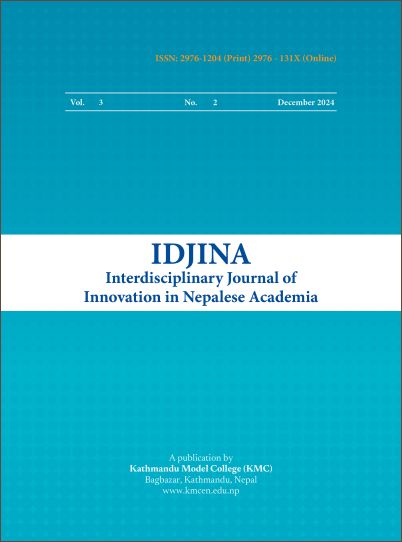Exploring Eastern Philosophy in Radha by Krishna Dharabasi: A Comprehensive Analysis
Keywords:
Eastern philosophy, dharma, karma, moksha, existentialism, non-attachmentAbstract
The Eastern philosophy, deeply rooted in the cultural and intellectual traditions of South Asia, provides profound insights into the human condition, addressing themes of duty, action, and liberation. The novel Radha by Krishna Dharabasi offers a modern reinterpretation of the mythological Radha, challenging traditional portrayals by focusing on her existential and philosophical struggles. The paper examines how Dharabasi weaves together Hindu concepts such as dharma (duty), karma (action), and moksha (liberation) with Buddhist and Jain teachings on suffering, non-attachment, and self-realization. The study employs a qualitative textual analysis and comparative approach to explore Radha’s recontextualization of ancient philosophical doctrines, addressing contemporary debates on identity, agency, and autonomy. The portrayal of Radha as a multifaceted character navigating personal and societal expectations bridges traditional philosophies with modern existential concerns. The research aims to deepen understanding of Eastern philosophy’s relevance in contemporary literature and contribute to interdisciplinary discourse on the intersection of philosophy, literature, and cultural studies.
Downloads
Downloads
Published
How to Cite
Issue
Section
License

This work is licensed under a Creative Commons Attribution-NonCommercial-NoDerivatives 4.0 International License.
This license allows reusers to copy and distribute the material in any medium or format in unadapted form only, for noncommercial purposes only, and only so long as attribution is given to the creator.




